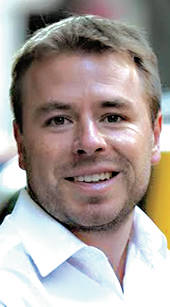The Sierra Club invites the public to the final event of its three-part series on the impacts of climate change on Hawaii’s marine resources. ADVERTISING The Sierra Club invites the public to the final event of its three-part series on
The Sierra Club invites the public to the final event of its three-part series on the impacts of climate change on Hawaii’s marine resources.
The presentation at 6:30 p.m. Friday in the County Building’s Aupuni Conference Room is co-hosted by Eileen O’Hara, Hawaii County Council member from District 4. Light refreshments will be served and the event is free.
Dr. John Burns, zoology professor from the University of Hawaii at Manoa, will be giving a talk titled “Coral Health Throughout the Hawaiian Archipelago.” Burns focuses his research on coral health and disease. He is particularly interested in the physiological impacts of diseases on affected corals and their associated algal endosymbionts.
Burns also studies the epizootiology of affected coral populations in order to determine environmental drivers of reduced coral health and disease. He hopes to determine localized drivers of coral diseases in order to promote healthy coral ecosystems in the face of global stressors such as climate change.
Burns recently developed novel techniques for accurately quantifying the three-dimensional characteristics of coral reefs, which will improve the capability to assess the impacts of global and local environmental change on coral reef structure and overall ecosystem functionality.
In addition to the presentation by Burns, a short 12-minute documentary, “Reefs at Risk,” produced by Hawaii mother and daughter production team Lynn Pelletier and Malina Fagan, will be shown. The short film produced with support from the Redford Center and the New York Community Trust, documents the impacts on local coral reef systems from oxybenzone and other ingredients commonly found in sunscreen products. There will be a “sunscreen swap,” or trade-in opportunity, in which sunscreen products containing oxybenzone can be exchanged for a nontoxic replacement product.
For more information, contact O’Hara’s office at 965-2712.




